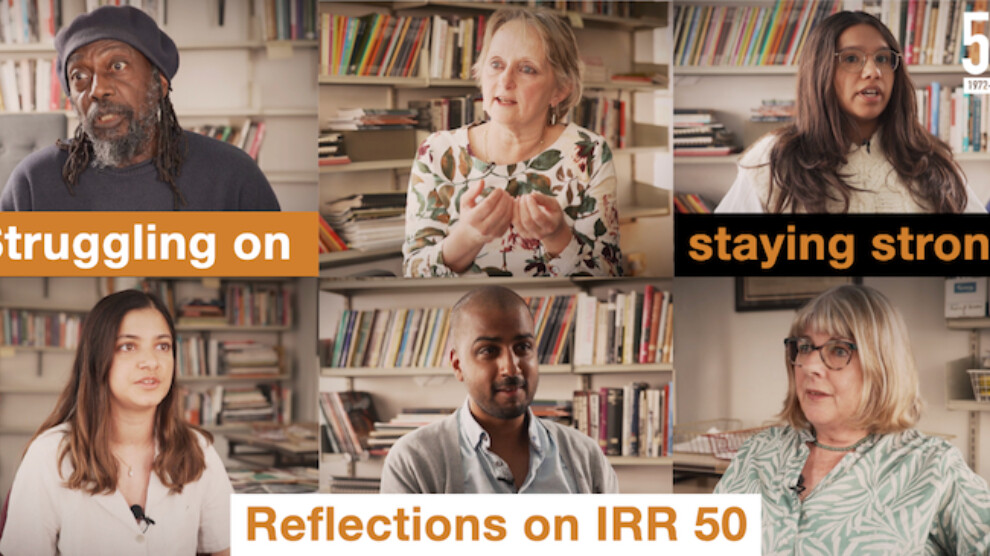Struggling on, staying strong: Reflections on IRR50
To mark 50 years since the radical transformation of the Institute of Race Relations, a film has been released on the IRR's longevity and place in British anti-racism.
To mark 50 years since the radical transformation of the Institute of Race Relations, a film has been released on the IRR's longevity and place in British anti-racism.

To mark 50 years since the radical transformation of the Institute of Race Relations, staff and council of management members reflect on the IRR's longevity and place in British anti-racism. Filmed and produced by Rainbow Collective.
For 50 years, the IRR has anchored the fight against racism
On limited resources and with a team of just four full-time staff, the Institute of Race Relations has sustained its reputation as a leading anti-racist thinktank for over half a century.
Home to Race & Class, IRR News, the Black History Collection and the Register of Racism and Resistance, it has produced cutting-edge UK and European research on migration, exploitation and state racism with its pioneering race-class analysis.
The challenges we face are formidable. Amidst economic and social crises, we are witnessing an increasing authoritarianism that threatens human rights, attacks equalities and natural justice and is rolling back hard-fought protections against discrimination, racism and bigotry.
Background
The Institute of Race Relations (IRR) was established as an independent educational charity in 1958 to carry out research, publish and collect resources on race relations throughout the world. In 1972, the IRR’s membership backed the staff in a radical transformation of the organisation from a policy-oriented, establishment, academic institution into an anti-racist ‘thinktank’. The IRR began to concentrate on responding to the needs of Black people and making direct analyses of institutionalised racism in Britain and the rest of Europe.
Today, the IRR is at the cutting edge of the research and analysis that inform the struggle for racial justice in Britain, Europe and internationally. It seeks to reflect the experiences of those who suffer racial oppression and draws its perspectives from the most vulnerable in society.